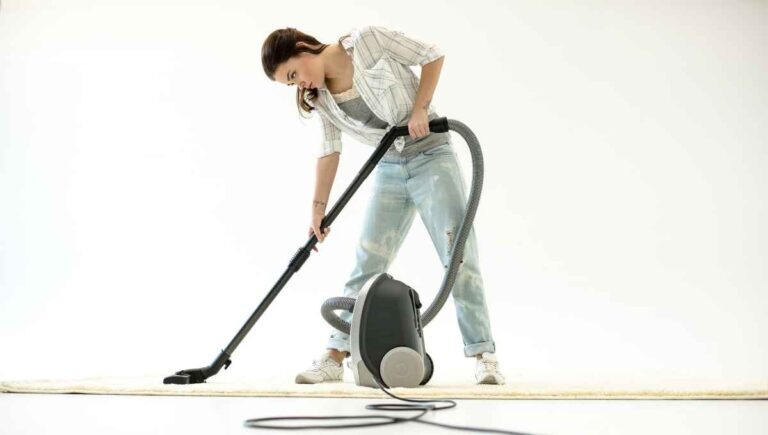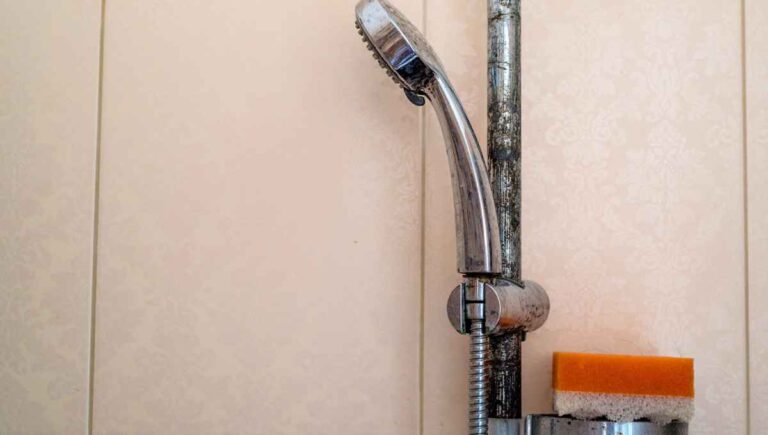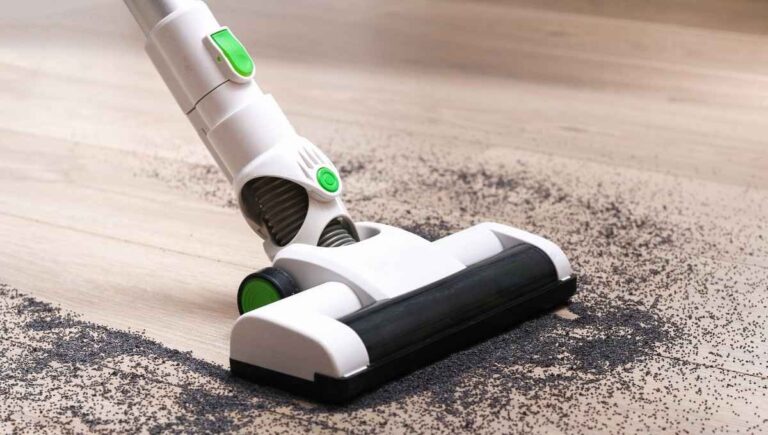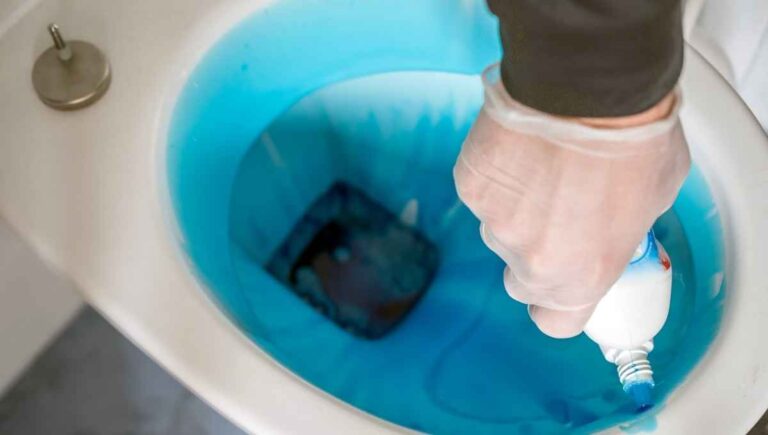Can You Use a Vacuum Without a Filter? (This Might Happen)
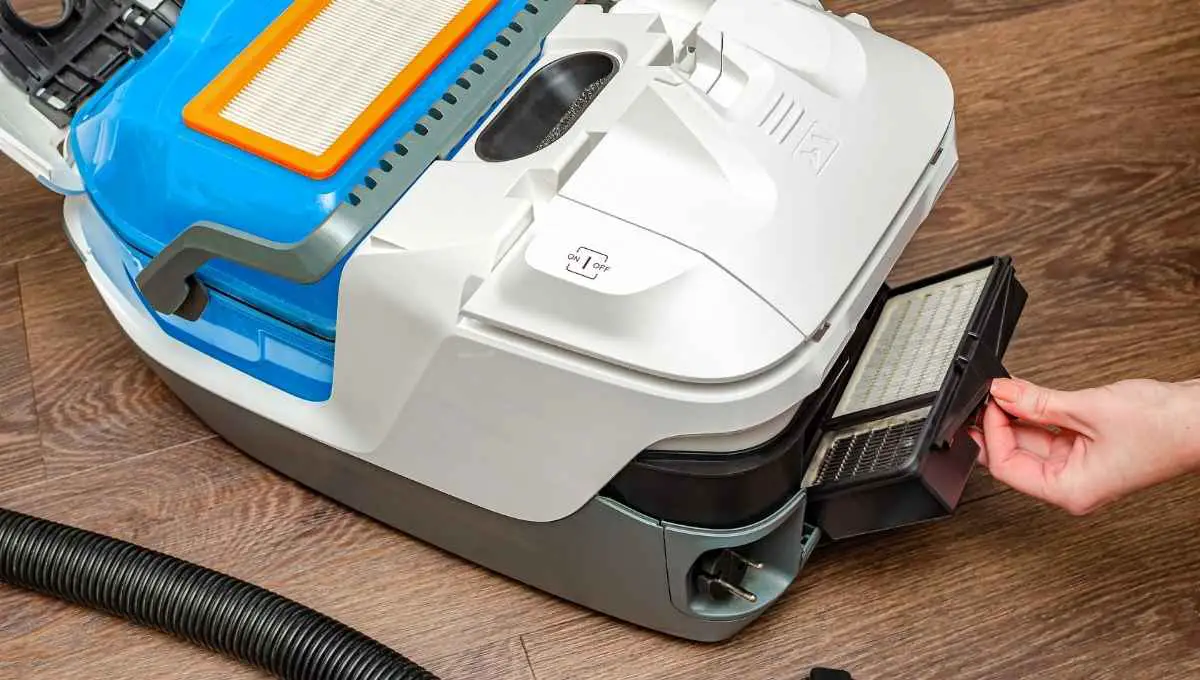
Replacing or washing your vacuum filter every few months can become frustrating. You might even start to consider using a vacuum without a filter. But is this a good or a bad idea? Does a vacuum cleaner really need a filter to work?
Most vacuum cleaners need a filter to efficiently clean up dirt and dust. Although it may seem as if the vacuum cleaner is working, it is not working at its best capacity since most of the dust and other particles are being blown back into the environment.
The only exception to this rule is wet-dry vacuums that can clean up wet messes, although they still use a filter when cleaning dry messes. This article will discuss the importance of HEPA filters and if your vacuum really needs them.
This post contains affiliate links. This means Household Blogger may earn a commission should you make a purchase using any of our links. Please refer to our full affiliate disclosure policy for full details.
Here’s a Quick Pro Tip!
Using a vacuum cleaner without a filter is a bad idea, but if you’re in a pinch, you might need a DIY vacuum filter hack. No hack could replace a filter long-term, but these could work for short-term fixes.
Short-term hacks for a DIY vacuum filter:
1. Paper towels – Ideal for completely replacing your vacuum filter.
2. Pantyhose – Can be tied around your old filter to catch most of the dirt.
The importance of Hepa Filters
High-Efficiency Particulate Air (HEPA) filters are found in most vacuum cleaners. These filters can remove most dust, pollen, mold, and other airborne particles.
People who suffer from allergies gain more benefits from HEPA filters. Let’s start by discussing all things HEPA!
Can I Use My Vacuum Without a Hepa Filter?
You can use your vacuum cleaner without a HEPA filter, although you would lose the advantages of using a HEPA filter. These advantages include removing pollen, pet dander, and dust mites from the air.
When using a vacuum cleaner without a HEPA filter, these particles get blown back into the air that you breathe.
This could increase the chances of allergies, especially for allergy-prone residents of the home.
What Happens if You Don’t Replace a Hepa Filter?
Failing to replace a HEPA filter will cause it to build up a lot of dust and grime. In turn, this can cause your filter to malfunction or be damaged beyond repair. So, you should definitely check and replace your HEPA filter often.
Generally, replacing your HEPA filter every six months is recommended, although this is just an estimate.
Failing to replace your HEPA filter in your vacuum cleaner also reduces suction power and increases dust emission.
You might also enjoy our post on If You Can Vacuum Without a Bag
Can I Reuse My Hepa Filter?
If you have a permanent or washable HEPA filter, it can be cleaned and reused. However, not all HEPA filters are reusable. Before purchasing a new vacuum cleaner, you should check whether it uses a washable or non-washable HEPA filter.
Check the label of your HEPA filter, and if it says ‘non-washable,’ you should not try to wash it. Experts suggest simply replacing the HEPA filter.
Especially if you want a HEPA filter that functions properly and collects any and all pollutants.
How Often Should I Change the Hepa Filter In My Vacuum?
On average, you should replace your HEPA filter in your vacuum once or twice a year. This varies depending on how often you use your vacuum cleaner and what you vacuum. It’s recommended to check your HEPA filter at least once a week.
Failing to regularly replace your HEPA filter could lead to decreased suction power and many more allergens floating around in your house.
Signs that it’s time to replace your HEPA filter:
- Your vacuum cleaner loses suction power.
- Your vacuum cleaner makes strange or loud noises.
- Your HEPA filter looks dark and dirty.
Is It Worth Getting a Hepa Filter?
Getting a HEPA filter is definitely worth it if you value a clean and healthy home environment. The filter traps most microbial spores, soil particles, pathogens, pollen particles, and so much more.
It’s also highly recommended if you or someone in your household suffers from allergies.
According to the EPA, it can theoretically remove 99.97% of pollen, mold, and any other airborne particles with a size of 0.3 microns.
How Much Does a Hepa Filter Cost?
HEPA filters usually range between $10 and $95, depending on the quality and manufacturer. Manufacturers usually indicate which HEPA filters your vacuum cleaner is compatible with.
When buying replacement filters online, you should be sure to purchase the correct filter for your model vacuum cleaner.
If you’re unsure which HEPA filters to purchase online, you can take your old filter to your local hardware store and ask a consultant to help you.
Other Vacuum Filter Concerns
Now that we understand how important HEPA filters are let’s discuss regular vacuum filters. These are not exactly the same as HEPA filters, as most vacuum models need a filter to work.
Can I Wash My Vacuum Filter?
You can check the label of your HEPA filter for cleaning instructions if any. If your vacuum filter is washable, you should rinse it under cold water. If non-washable, it would need to be replaced.
To clean your washable vacuum filter, start by shaking off most of the dust in a trash bag. Then rinse the filter with cold water.
Do not touch, rub or scrub the filter material as it could tear or damage. Only rinse it under cold water.
If the filter still looks clogged and dirty, you could add some cleaning detergent to the water and soak the filter in soapy water. Again, be sure not to rub or scrub the filter material.
Rinse off all the suds and let the filter dry completely before reinstalling.
When Should I Change My Vacuum Filter?
Changing your vacuum cleaner filter is recommended once or twice a year. This number differs depending on how often you use your vacuum machine. Some tell-tale signs can indicate it’s time for a new filter.
We recommend checking your filter every week. Some of the signs that you might need to replace your filter could be loud or strange noises emitting from your vacuum.
Losing suction power in your vacuum could also indicate that your filter needs to be replaced.
How Often Should You Clean Vacuum Filters?
Vacuum filters should be cleaned every 6 to 9 months. Before attempting to wash your filter, you should consult the user manual and check if the filter is indeed washable. If not, you should replace the filter if it gets clogged.
When cleaning your HEPA filter, rinse it under cold water and be sure not to touch the filter material.
After rinsing most of the blockage away, you should let the filter dry completely before reinstalling it in your vacuum cleaner.
You might also enjoy our post on If You Can Use a Vacuum Without a Belt
How Do You Make a Vacuum Filter?
You can make a vacuum cleaner with your old filter canister, paper towels, and painter’s tape. Any material that allows air to flow through but traps airborne particles would be a good substitute filter.
Steps to make a DIY vacuum cleaner filter:
- Remove the old filter from your vacuum canister.
- Wrap one layer of paper towels around the canister.
- Secure on the top and bottom with painters tape
- Replace the canister in your vacuum cleaner.
Concerns Regarding Specific Vacuum Brands.
Every manufacturer designs its product to different specifications and goals. You should consult your user manual before washing or replacing your filter.
Most vacuum models do not work without a filter.
Can You Use a Hoover Vacuum Without a Filter?
It is not recommended to use your Hoover vacuum cleaner without a filter. The filter collects all the dust and dirt particles. So, without a filter, all those particles will get blown back into your home, defeating the purpose of the vacuum cleaner.
The dust particles might also build up around your vacuum cleaner’s motor, causing it to overheat. When the motor overheats, it could cause permanent damage to your vacuum cleaner.
Instead don’t try to use your Hoover vacuum cleaner without a filter.
Can You Use Shark Vacuums Without a Filter?
Shark vacuum cleaners should not be used without a filter. All shark models currently need a filter to function correctly. Most shark filters are washable, so by consulting your user manual, you can check if you can rinse your filter in cold water.
Ensure your filter is completely dry before reinstalling them and using your vacuum again.
Some models will refuse to work without a filter, while others might sound like they are working, but in reality, the dirt and grime will not be cleaned up.
Can I Use My Shark Vacuum Without the Hepa Filter?
If your Shark vacuum cleaner turns on with no HEPA filter installed, you can use it without the HEPA filter. Some models, like the Shark Duoclean, will not work without a HEPA filter.
HEPA filters are designed to remove 99.97% of mold, bacteria, and other pollutants from the air. They can also remove much smaller particles than regular vacuum filters can; thus, some vacuum cleaners require a HEPA filter to work.
Can I Use My Dyson Without the Filter?
If your Dyson vacuum cleaner needs a filter, you should not try to use it without one. Some of the newer models, like the Dyson Cinetic Big Ball Vacuum, do not need filters to work. You should consult your manual to check if your model works with a filter.
Other models like the Dyson V10 series do need filters to work and should not be used without a clean filter.
Using a vacuum without a filter will cause the dust and dirt to float back into your room and land on all your surfaces again.
Can I Use My Bissell Without a Filter?
You should not use your Bissell vacuum cleaner without a filter. Vacuuming without a filter can cause the motor to burn out. This usually causes permanent damage to your motor that needs to be replaced.
Using a vacuum cleaner without a filter allows the dust, dirt, allergens, mold, and all the other pollutants to blow back into your air.
All of these could cause an allergy attack or respiratory difficulties for people with allergies.
You might also enjoy our post on If You Can Vacuum a Wet Carpet
Shop-Vac’s
After discussing various vacuum manufacturers, let’s look at Shop-Vac. This brand has become the leading wet-dry vacuum manufacturer, but does it need a filter? Let’s discuss it below!
Is It Ok to Use a Shop Vac Without Filters?
Surprisingly, most Shop-Vac models can be used without a filter. This only applies to cleaning moist messes or liquid messes. When you’re cleaning dust and dirt, you should install the filter in your Shop-Vac.
Trying to vacuum dust without a filter will put the machine at risk of blockage or overheating. It also limits the functionality of your shop-vac.
It would be best to research your specific make and model to ensure it can clean without a filter.
Will a Shop-Vac Work Without the Canister?
Most models do not work without a canister. However, some models have a ‘water pump’. This feature allows you to attach a garden hose to your Shop-Vac and pump water through the garden hose to another location.
The Shop-Vac needs a destination to pump liquid messes too, whether that is to the canister or through the garden hose.
The machine will not work if there is no destination (the canister) for the liquid or dirt messes.
What Can I Use as a Shop-Vac Filter?
You can use an old pair of leggings or pantyhose over your Shop-Vac filter. This allows proper airflow through your filter while catching most of the dust and dirt. It’s a lot easier to clean than the whole filter.
With this hack you can tie a pair of pantyhose over your old filter, it does not necessarily have to be a new filter. This hack will extend the life of your current filter.
Eventually, you would need to completely replace your Shop-Vac filter.
What Does a Shop Vac Filter Do?
The Shop-Vac filter catches all the small particles in the air that could be hazardous to human health. Particles like dirt, mold, bacteria, and allergens are trapped in the filter, ensuring our homes have a healthy environment.
Wet-dry Shop-Vac doesn’t need a filter to clean wet messes (like water), but a filter is needed to clean dry messes (like dust and dirt). Your filter should also be cleaned or replaced at least twice a year.
You might also enjoy our post on If a Vacuum Cleaner Can Catch on Fire
Related Questions
Does Vacuuming an Air Filter Help?
If your air filter is non-washable, vacuuming it might not actually help to get the dust out of the inner fibers. It’s recommended to replace non-washable air filters to ensure your home has a safe environment.
If your filter is washable, it is better to rinse it under cold water with some detergent. Vacuuming the filter could damage the mesh fibers of the material.
This damage will make the filter less efficient in trapping particles from the air.
Should You Clean the Vacuum After Every Use?
Experts suggest you should clean your vacuum cleaner after every use, although this is not always possible. To save you some time, we would recommend lightly rinsing your washable filters once a month.
Reference your user manual to see the recommended cleaning schedule for your vacuum filters.
If your vacuum uses non-washable filters, it will need to be replaced every few months, depending on how often you use your vacuum cleaner.
How Do I Deep Clean My Vacuum?
Deep cleaning your vacuum cleaner is easier than you might think, with only four easy steps. Deep cleaning is important to maintain and extend the life of your vacuum cleaner. It also helps to prevent premature damage to your motor due to overheating.
Steps to deep clean your vacuum cleaner:
- Wash your canister with soap and lukewarm water.
- Wash your filter with cold soapy water OR replace your filter.
- Remove the hose and run hot water through it to rinse any dirt.
- Wash the outside of your vacuum with a microfiber cloth.
Make sure all the parts that you clean are completely dry before replacing them in your vacuum cleaner.
Final Thoughts
All in all, it’s not recommended to use your vacuum cleaner without a filter. Some vacuum filters are washable, and others need to be replaced (check your user manual).
We hope that you feel more confident in your understanding of vacuum cleaner filters.






